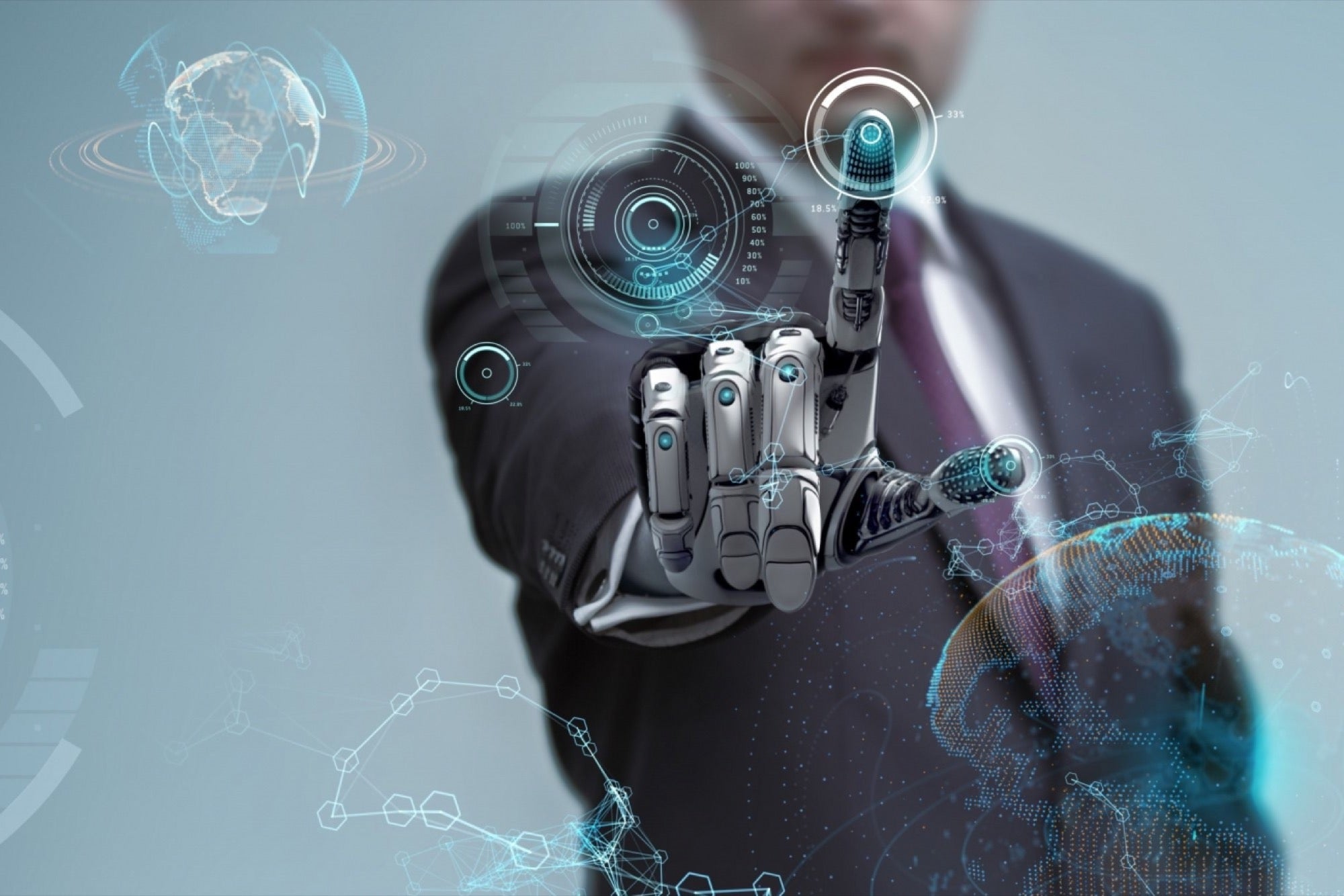Evolution of AI in HR: Innovations & Unmet Challenges The role of AI is significant in sorting out objective data and has helped in streamlining many functions of the administrative and talent management process of the HR
Opinions expressed by Entrepreneur contributors are their own.
You're reading Entrepreneur India, an international franchise of Entrepreneur Media.

Artificial Intelligence (AI) is increasingly finding applications across many business operations. While functions like production, sales and managerial departments in companies have been benefiting from AI solutions to strengthen their productivity, AI is also handling diverse facets of the Human Resource (HR) workflow. There are three operational challenges that the HR domain encounters on a daily basis:
Administration (Leave policies, rules & discipline, salary, legal issues)
Talent Management (Training & development, performance review, employee feedback)
Recruitment (Finding quality talent amidst increasing attrition rates)
Recruitment is the most vital component. The weightage of challenge can be further classified as - administration (5%), talent management (10%) and recruitment (85%). Taking a step back and looking at how recruitment process used to work, the advertisement in local newspaper was the only intermediary between a company and a candidate. In the digital age however, redundancies (citations with several hyperlinks) of job applications and ads across multiple medium have made the recruitment process a nightmare.
The role of AI is significant in sorting out objective data and has helped in streamlining many functions of the administrative and talent management process of HR. AI companies have developed cutting edge solutions that enhance productivity and efficiency. Earlier, if an HR was spending 3-4 weeks in collating data for administrative purposes, now there are tools that reduce work to few days, while the number of staff working in administration is reduced by 50% or more.
AI is more involved in talent management in terms of collecting feedback from employees through quantifiable (objective) metrics that measure satisfaction and suggestions. AI systems identify reasons for low team productivity, ineffective communication, unmet timelines, etc. and provide analytics that allow management to improve operational aspect of HR seamlessly.
On the recruitment front, hiring the right talent is preceded by a chaotic screening process. Even though advanced technology is pervasive in all functions of a company, the time taken to hire a candidate still ranges between 3-4 months, and for top-level management positions, it may even take year or more. About 90% of this time is taken up by the screening process. This is a mammoth challenge that the HR departments experience globally. The following 3 reasons explain why:
Company exaggerations – Job descriptions composed by employers, are getting unbearably longer, so that misfit candidates don't apply but the latter applies anyway by fine tuning their resumes in sync with the job description
Candidate exaggerations – To increase chances of getting interviewed, candidates glorify their skills and experience, making it challenging for recruiters to screen the right talent for subsequent rounds
Ideal Candidate / Ideal Job availability – Majority of candidates reactively look for a job change as opposed to looking for one proactively. The ideal candidate may not look out for a job, when his ideal position is advertised by a company, or vice-versa
The above reasons explain why AI is fundamentally limited in the recruitment sector. It cannot discern if people are telling the truth, and it will evaluate candidates based on subjective inference (like job descriptions written by a human) and comparing with what candidates disclose about themselves (also subjective). The credibility of AI's screening efficiency will be in question, when compared with recruiters, because the latter will assess on factors beyond credentials, based on what the candidate discloses. AI excels in learning and statistical analysis of millions of data points, provided it deals with objective factors. It is ideal to relieve HR from monotonous and repetitive tasks and enabling them with valuable time, which could be used in leveraging their interpersonal skills and engaging with individuals.
AI is dynamic as it is learning and evolving uninterruptedly. But till date, there is no such groundbreaking AI technology to execute hassle free recruitment process – especially candidate screening. During recruitment, quality talent is assessed by subsequent human interactions to identify skills and subject expertise in a manner that best fits the position. The dire need at the moment is reducing the screening time from months to a few days – hence the justification for 85% challenge weightage assigned to recruitment.
An elaborate justification on whether AI can replace recruiters can be found here (https://www.entrepreneur.com/article/303704)










